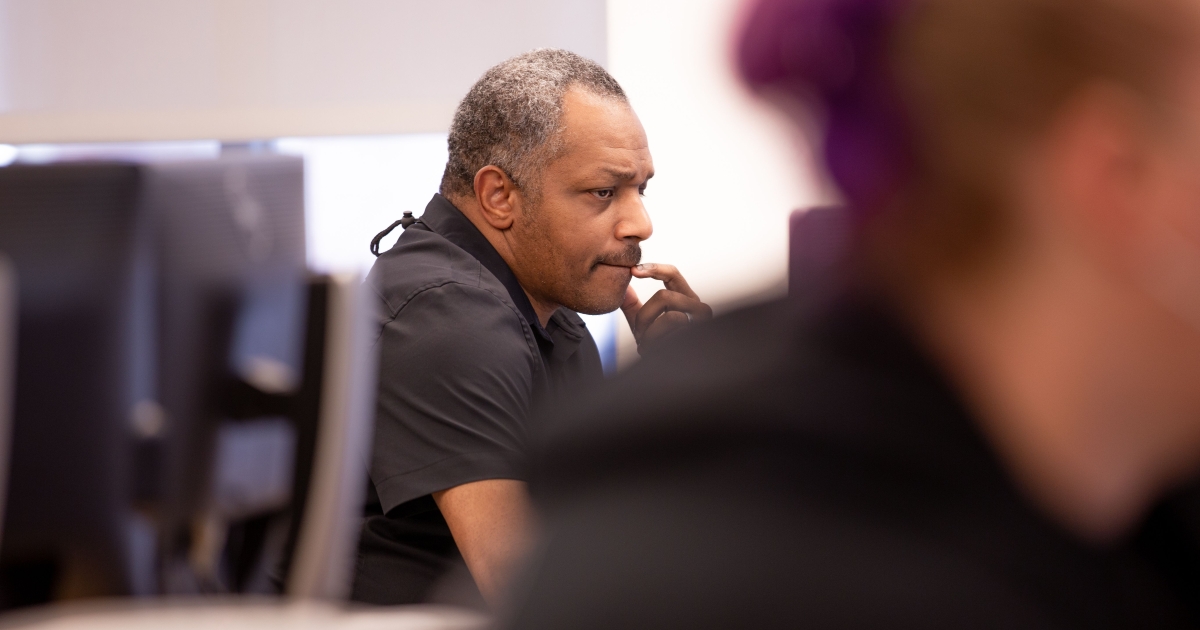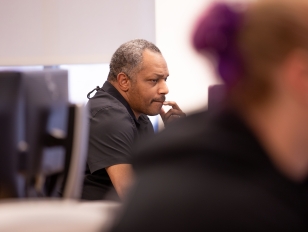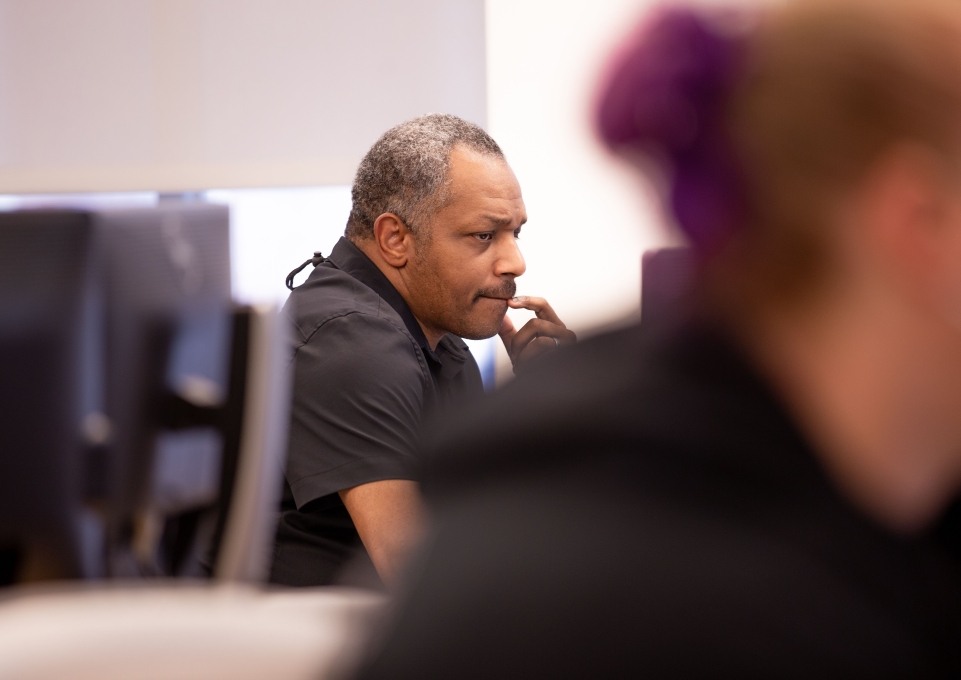
In 2015, when Pamela Healy, chair of the Computer Science Department at Nardin Academy in Buffalo, first attended a Computer Science for High School (CS4HS) event hosted by Buffalo State College’s Computer Information Systems (CIS) Department, her school had no computer science curriculum.
“Thanks to the support and guidance from the CS4HS faculty, I was able to work with the Nardin administration to build computer science programming and a department in the high school,” Healy said. “We’ve designed a sequence of classes that includes Exploring Computer Science, required of all incoming freshmen; two AP computer science courses; and robotics and Python electives. Students are very interested in these classes. Last year, I had 46 students take my AP Computer Science Principles course.”
Healy served as a teacher fellow at this year’s training, the Buffalo State GenCyber Teacher Camp, which CIS hosted August 1–5 in the Technology Building. Free for participants, the camp is supported by a GenCyber grant with funding from the National Security Agency and the National Science Foundation.
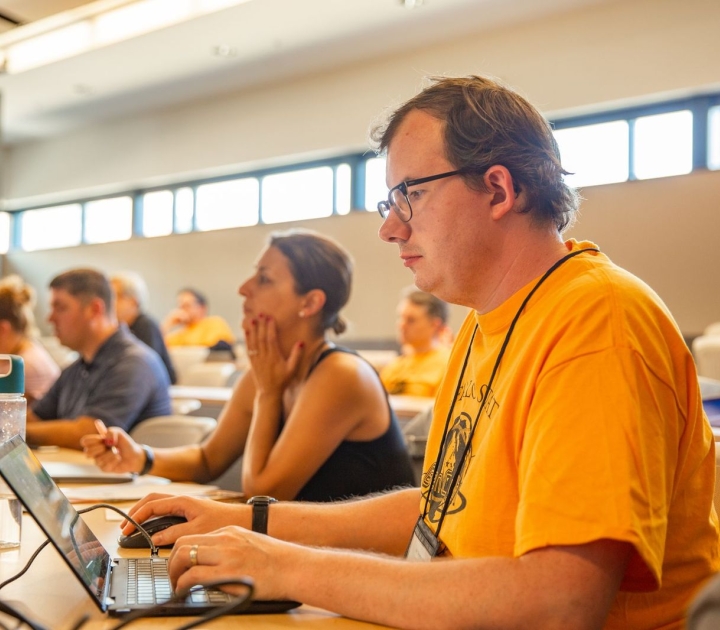
“Ensuring that enough young people are inspired to direct their talents in this area is critical to the future of our country’s national and economic security, as we become even more reliant on cyber-based technology in every aspect of our daily lives.”
— Sarbani Banerjee, Ph.D., Professor, Computer Information Systems
“We decided to make the focus of this year’s camp cybersecurity because it’s the fastest growing area of computer science and is in need of a large number of future workers,” said Neal Mazur, associate professor and chair of CIS. “The demand for jobs can be found in private companies, law enforcement, and the government.”
Ten CIS faculty members and a handful of outside experts, including FBI officers and a 2015 CIS alumna who works as an advanced threat hunter and assistant vice president at M&T Bank, presented hour-long sessions on topics such as cryptography, cyberbullying, child safety on the Internet, cybersecurity enforcement, and careers in cybersecurity. Nineteen middle school and high school math, science, and computer science teachers from Western New York, along with other cities in New York and New Jersey, attended the program.
“In an era when phishing scams, data breaches, and cyberbullying are becoming not only prevalent but dangerous, we wanted to educate teachers about how they can protect their students and teach concepts that will enable students to become savvy about cyber threats,” said Andrew Garrity, a CIS lecturer who presented a session on cyberbullying and cyber ethics.
Sarbani Banerjee, professor of CIS, said the goal of the camp is to ignite the next generation of cyber stars.
“Ensuring that enough young people are inspired to direct their talents in this area is critical to the future of our country’s national and economic security, as we become even more reliant on cyber-based technology in every aspect of our daily lives,” Banerjee said.
“Cybersecurity is the fastest growing area of computer science and is in need of a large number of future workers. The demand for jobs can be found in private companies, law enforcement, and the government.”
—Neal Mazur, Ph.D., Associate Professor and Chair, Computer Information Systems
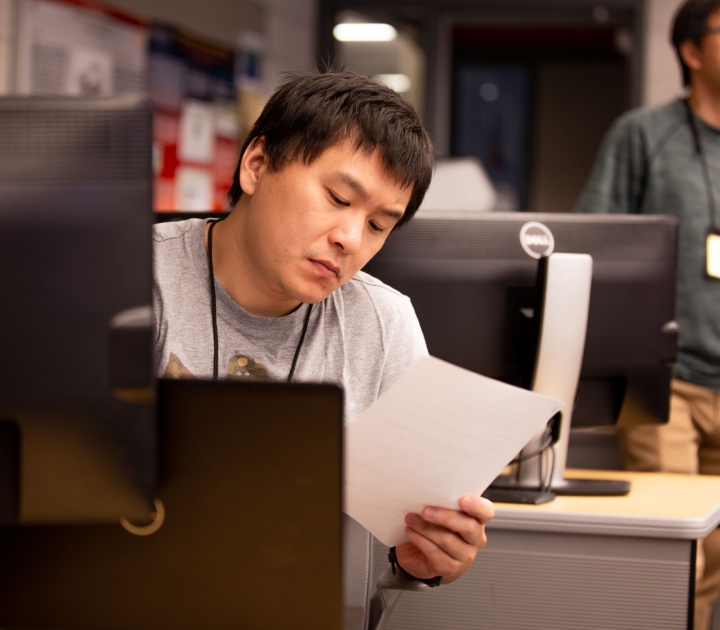
Throughout the week, teachers engaged in friendly competitions and worked together on cybersecurity lesson planning led by Joseph Zawicki, associate professor of career and technical education.
CIS began offering summer workshops for Western New York middle and high school teachers in 2012. CS4HS at Buffalo State has attracted more than 250 teachers since its inception.
As in years past, CIS faculty will continue to provide support throughout the academic year to the teachers who participated in the summer training.
“We will specifically help teachers as they introduce cybersecurity into their curriculum,” Mazur said.
Teachers are also encouraged to stay in touch and rely on one another throughout the school year.
“What I love about these workshops is that they create a rich network of support for the teachers who attend,” Healy said. “I have made some incredible connections with teachers from not only Western New York but as far away as New Jersey. It’s so important for teachers who are taking a leap like this—teaching content outside of their primary area—to have a group of colleagues they can work with, share in successes, and learn from mistakes.”
Photos by Jesse L. Steffan-Colucci, college photographer, Creative Services.
